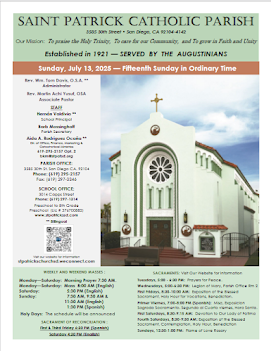Poverty's Solution May Be Utah
It seems the capital of "the Mormon state" is about
the best place in America to escape poverty. This is the conclusion of economists Raj Chetty, Nathaniel Hendren,
Patrick Kline, and Emmanuel Saez after studying the social landscape of Salt Lake City. So journalist Megan
McArdle "went to Utah to discover its secrets and assess whether they could be exported."
She discovered, among other things, that "big
government" was not the answer, but neither was laissez faire. The Mormon church played a significant role, as did
this: "People in Utah's government casually talk about getting the community involved in their efforts, not as a
rote genuflection to a political ideal, but as an actual expectation." Lest I give away too much, here is the link to the full article.
| ||
If You Don't Know the Name Alvin Plantinga
You
should. He's just been awarded the Templeton Prize, to the tune of $1.4
million. It's not the money as much as the recognition of a lifetime of
work that a devout Christian philosopher who, as our headline put it, "proved God's not dead in academia."
| ||
The Problem with Eagles
Is there nothing sacred in our country anymore? Apparently not, since it turns out that eagles are not as majestic as we have imagined:
We're used to seeing our national bird as a valiant hero in nature documentaries plucking salmon from pristine streams, on the back of every dollar bill in our wallets, or on pretty much every federal seal. … Turns out that when you live with a federal symbol up close and personal, day in and day out, it's a little harder to think of them as majestic. Bald eagles show up in the local police blotter alongside reports of drunk fishermen passing out in the wrong bunk or taking off in someone else's forklift. Even in his hut or cave the hermit will never be free from the most dangerous representative of the world, i.e., himself. —Karl Barth, Church Dogmatics IV.2 page 12 | ||
Grace and peace,
| ||
| ||
Friday, April 28, 2017
Confused Lovers of Jesus
A
recent Barna survey--of people who "love Jesus but not the church"—is well worth spending some time
with. This is one significant reality of contemporary religious life in America. But the careful reader will end up
asking some questions.
The study says these people maintain orthodox belief
despite church absence. But can they be said to be orthodox when they refuse to participate in the life of the
community that Christ himself founded, which has long been considered an essential orthodox belief?
These individuals claim to love Jesus but not his
church, but can it be said that these people love the real Jesus if they refuse to participate in the community he
promises to be present in?
These individuals say they have experiences of God
(even more than do practicing Christians), but what makes us think their experiences are of God or just warm
spiritual feelings? And could it not be that the mundane and often trying life found in Christian community is
what God calls us to, and that this experience (a kind of suffering at times!) is a more authentic experience of
the One who patiently has suffered for us and with us in Jesus?
This is not to let the church off the hook, because
we've all been in churches whose lack of spiritual authenticity makes us want to run away as fast as we can. And
this is not to mock these people, because I assume they are sincerely seeking what they perceive to be spiritual
truth. But still, the non sequiturs above should be explored a bit more if we're going to address such beliefs and
behaviors from a classic Christian perspective.
Subscribe to:
Post Comments (Atom)


























No comments:
Post a Comment